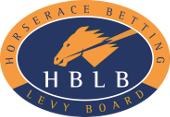Thursday 17th December 2020
Horserace Betting Levy Board Publishes International Codes of Practice for 2021
The Horserace Betting Levy Board (HBLB) has published the 43rd edition of the Codes of Practice on equine disease, in preparation for the 2021 equine breeding season. These are available online only at codes.hblb.org.uk.
The online version may be accessed as a full document or as separate sections. It may be downloaded in pdf format for printing or viewing offline.
The updated free app, EquiBioSafe, which covers both breeding and horses in training will be released on iOS and Android in the New Year.
Applying to all breeds of horse and pony, and to both natural mating and AI, the Codes are an essential guide for the prevention and control of equine diseases which represent a potential major threat to equine breeding:
- Contagious equine metritis (CEM)
- Equine viral arteritis (EVA)
- Equine herpesvirus (EHV)
- Equine coital exanthema (ECE)
- Equine infectious anaemia (EIA)
- Dourine
- Guidelines on equine influenza (EI)
- Guidelines on strangles
- Guidelines on West Nile fever(WNF)
- Guidelines on artificial insemination (AI)
For each disease there are sections which describe transmission and clinical signs, as well as advice on prevention, diagnosis and control of infection. The Codes explain the notification requirements that apply for the four diseases that are notifiable by law: CEM, EVA, EIA and dourine.
The Codes of Practice are reviewed annually by an expert Sub Committee of HBLB’s Veterinary Advisory Committee. The Sub Committee includes representatives of:
- Thoroughbred breeders in Britain, Ireland, France, Germany and Italy
- The non-thoroughbred sector
- Defra
- Equine veterinary practitioners
- Scientists expert in infectious disease.
Rob van Pelt, Chairman of the Codes of Practice Sub Committee, said:
“The 2021 version includes a major new section giving guidelines on how to recognise, diagnose and manage West Nile fever (WNF). To date no case of WNF has been diagnosed in this country, but expert opinion suggests that it is a matter of when, not if.
“The revisions for this year also include revisions to the CEM swabbing protocol, a number of small updates occurring throughout the document, and the simplified Defra contact details.
“2020 has been a relatively quiet year for equine disease, but this may reflect the reduction in activity due to COVID-19. There is no room for complacency. We are all much more aware of what infectious disease can mean. The coronavirus pandemic has highlighted the importance of informed disease management and, where available, vaccination.”
For further information please contact Annie Dodd, HBLB Grants Manager, by email at annie.dodd@hblb.org.uk or by direct telephone on 020 7504 4014.
